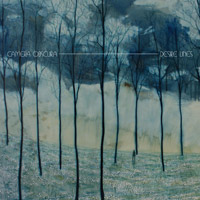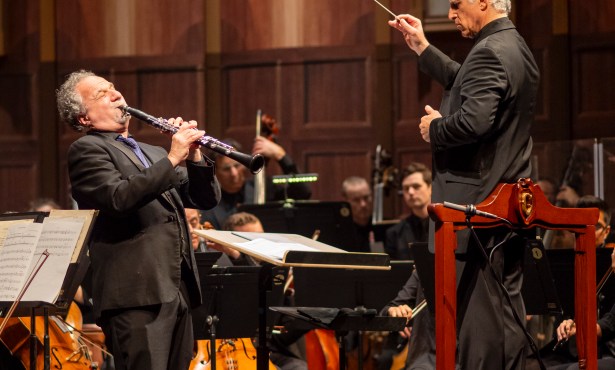Camera Obscura Forges On
After a Series of Setbacks, the Glasgow Band Returns with Desire Lines

It’s been more than four years since we’ve heard from Camera Obscura. In 2009, the Glasgow indie pop act unveiled My Maudlin Career, a sweeping baroque affair that paired frontwoman Tracyanne Campbell’s saccharine sweet melodies with all manner of strings and harmonies. The album was hailed by critics and helped spread the word stateside, but following it up proved no easy feat. After nearly three years of touring, Campbell was feeling the effects of burnout, and trumpet player and new dad Nigel Baillie decided to take a step back. Not long after, keyboardist/vocalist Carey Lander was diagnosed with cancer. (She’s currently in remission.)
Flash forward a year, though, and Camera Obscura has emerged brighter and more fresh-faced than ever. Earlier this month, the band releases its long-awaited fifth album, Desire Lines on 4AD. Recorded in Portland, Oregon, with producer Tucker Martine, the album features guest spots by My Morning Jacket’s Jim James and alt-country star Neko Case, and finds the band scaling back the sonic atmospherics and embracing a style that’s airier, poppier, and at times even more rocking.

This week Camera Obscura kicks off its North American tour at SOhO Restaurant & Music Club. We recently caught up with Lander to talk about the hiatus, the album, and the obstacles that led to its making.
I know that you all went through some pretty intense stuff in between My Maudlin Career and this record. Can you tell me a bit about the months leading up to the start of Desire Lines? The songs ended up being written over a pretty long period of time; the song “Desire Lines” was one of the first to emerge. That was written while we were still touring My Maudlin Career, but the band really felt that they needed a break, and Tracyanne as a songwriter was especially keen to take some time out rather than trying to rush or force material. A couple of the songs were shaped by what was happening to us during that time, and other songs were more seeking an escape from it.
How do you feel like those experiences helped inform the record? When it finally became possible for us to commit to recording the album, having been delayed by personal events and illness, we were feeling pretty focused. It was good to put the struggles behind us and concentrate on trying to make a good record. It felt especially important to me this time to make something I could feel proud of.
What are the themes you’d attached to Desire Lines? I think it’s about taking stock of life. We are a little older, wiser, and sometimes sadder and I think the songs are looking at our time as a band, the strength of our relationships, and the struggle to feel like you’re doing something worthwhile and rewarding. We are keen to look to the future and are still ambitious about making music and that means trying to resist the familiar and stray from bad habits.
How did you come to settle on the album title? Since it was one of the first songs written for the record, I guess it was always a contender. It was really the only thing that felt right.
In terms of songwriting, does your process tend to follow a pattern? Does one thing generally come first? Our songwriting process has stayed largely the same over the years. Tracyanne writes the basic songs whenever the inspiration comes; this will be a melody, most of the chords and some of the words. Then as a band we get to explore the song and try out different ways of playing and arranging it until we’ve found something new and true.
On past albums, where did the string and horn arrangements fit into the process? Some have been written by the band, particularly on the early songs, but when we worked with [producer] Jari [Haapalainen] on the previous two albums he was keen to bring in someone else to write these parts, and we really enjoyed the results. Collaboration is a good thing. There were less string and horn parts on Desire Lines, which was partly deliberate. We wanted the band to have space to play, and to hear individual instruments. We feel like we’ve pretty much covered the orchestral pop thing in the past; however we never rule it out if it feels right for the song.
Were you consciously trying to strip things down this go-round? We were keen to record in a different way. Previous albums were recorded very live, creating a big wall of sound and capturing a live energy. This time we wanted to record more of a studio album; we still played the songs together as a band, but there was more time for precision and space.
How did you come to find producer Tucker Martine? He was recommended to us by M. Ward and he was an interesting prospect because of his previous work with My Morning Jacket and others. We read up on him and looked up his studio, and it had a definite appeal. It felt like a really good match.
What was the recording setup like? We went to his studio, Flora — it’s in Portland. It’s totally gorgeous and really well kitted out. It has the cozy ambience necessary to make an interesting recording experience, and crucially for us, it’s far away from the distractions of home.
In terms of input, what was Tucker like as a producer? He was calm and patient, keen to listen to what the band had to offer and to let the music emerge gradually, but was then able to direct us into capturing it properly. Often when working with a producer you don’t really know how they imagine the final product sounding until you reach the end. During the recording process it can be pretty nerve-wracking as things might not sound perfect or exciting at the time, but you trust that they have a bigger vision.
What do you think he brought to the record? I think he allowed us the opportunity to shine as individual players. On this album I really like being able to hear every instrument in the band; they all have their special moments on the album.
How did Jim and Neko fit in? They are two artists that we are huge fans of, and both were working with Tucker [at the time], so it was an obvious proposition for us to make. On previous albums recorded in Sweden, we’ve had a lot of Swedish backing singers and musicians involved and it was great to have some American artists on this record.
Can you tell me a little bit about “Do It Again”? Was there any trepidation in putting such a blatantly rocking track on the album? I think that song is just a bit of fun. It came together very quickly, it always sounded pretty much how it does on record; the only concern was to make it convincingly energetic. We are capable of making some noise once in a while.
Do you have a favorite track on Desire Lines? Maybe “Every Weekday Friend.” The lyrics are pretty special to me; it tempts me to dance whilst choking me up.
4•1•1
Camera Obscura plays SOhO Restaurant & Music Club (1221 State St.) on Sunday, June 16, at 8 p.m. Call (805) 962-7776 or visit clubmercy.com for tickets and info.



